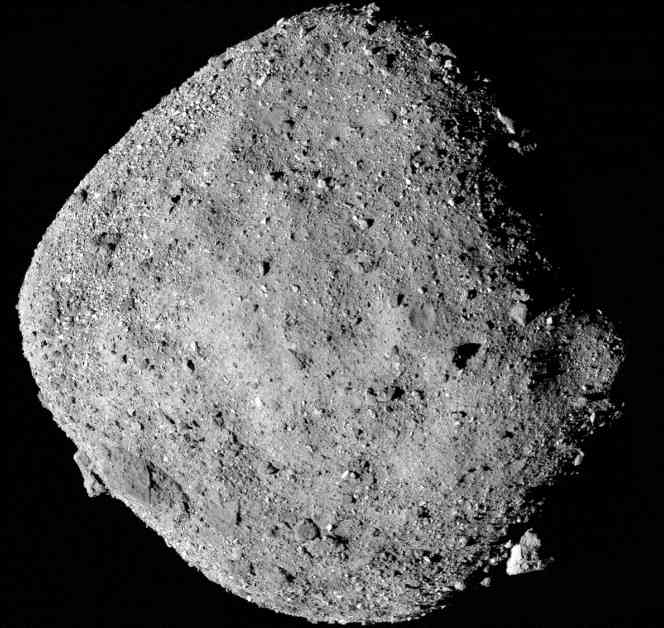When we think about asteroids, we often picture them as simple chunks of rocks left over from the formation of the solar system. However, recent discoveries have challenged this notion. The OSIRIS-REx mission, which visited the asteroid Bennu in 2023, found that the asteroid is full of unexpected minerals that suggest it may have been a lot wetter than previously thought.
One surprising finding was the presence of hydrated minerals like phyllosilicates and phosphates in the sample returned by OSIRIS-REx. These minerals contain water in their crystalline structure and are typically formed in environments with liquid water, such as the bottom of the ocean. The discovery of these minerals on Bennu raises questions about the asteroid’s history and whether it may have been a “wet world” in the past.
The presence of these hydrated minerals on Bennu indicates that the asteroid’s parent body may have undergone hydrothermal alteration, a process in which anhydrous minerals are changed to hydrated minerals due to exposure to water and heat. This suggests that Bennu’s parent body may have been a dynamic and geologically active world before it broke apart.
While the sample returned by OSIRIS-REx has provided valuable insights into the composition of Bennu, there is still much to learn about the asteroid and its origins. The discovery of hydrated minerals on Bennu highlights the importance of sample return missions in expanding our understanding of the solar system. By studying these samples in detail on Earth, scientists can uncover new information that would be difficult to obtain through remote observations alone.
Overall, the discoveries made on Bennu challenge our assumptions about asteroids and emphasize the complexity and diversity of these ancient objects. Further research and analysis of the samples returned by OSIRIS-REx will continue to shed light on the history of Bennu and its role in the formation of the solar system.






